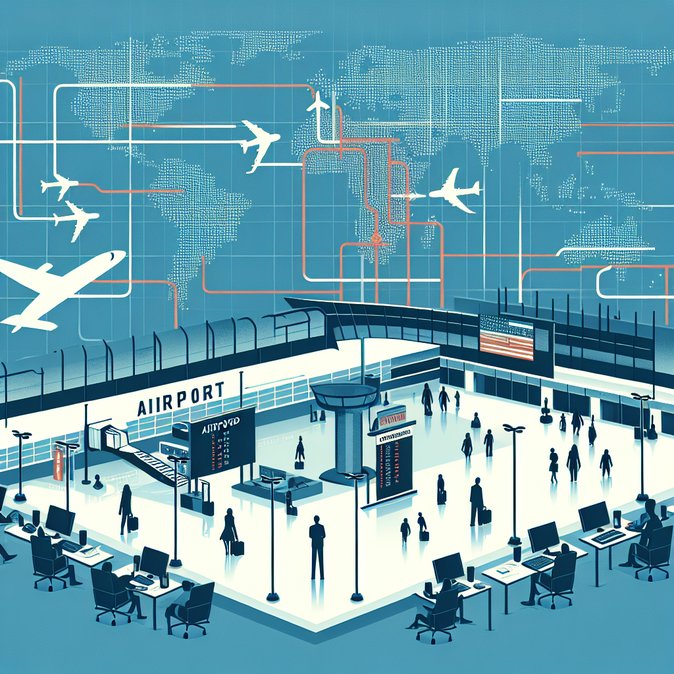
Belgium’s busiest air hub will come to a stand-still next Tuesday after management confirmed that **every scheduled departure on 26 November will be cancelled** due to a nationwide day of industrial action. The stoppage, announced in a statement on Wednesday, follows a call by several public-sector unions protesting rising living-costs and pension reforms. Handling agents, security screeners and some air-traffic support staff have pledged to down tools, forcing the airport to pre-emptively wipe its departure board.
While some arriving flights may still operate, the airport warned that last-minute diversions or cancellations are possible and urged airlines to re-route or rebook passengers early. Brussels Airlines—headquartered at Zaventem—has already pulled 70 sectors, while Ryanair and TUI fly Belgium are reviewing contingency plans that include positioning aircraft in neighbouring hubs such as Amsterdam Schiphol, Paris CDG and Düsseldorf. Ground transport will also be hit: Belgian Rail’s union members intend to run a “minimum service”, and the STIB/MIVB metro and bus network in Brussels expects major gaps in frequency.
![Nationwide strike grounds all Brussels Airport departures on 26 November]()
Business-travel managers are scrambling. Multinationals with Benelux headquarters—including AB InBev, UCB and Toyota Motor Europe—have instructed staff to avoid same-day trips and to switch meetings to virtual formats. Consultancy PwC Belgium says it will reroute consultants through Lille Europe for Eurostar connections, highlighting the importance of cross-border rail when aviation is disrupted. Relocation firms report that assignees scheduled to arrive next week are being re-accommodated via Frankfurt or Charles-de-Gaulle, adding both cost and complexity to corporate immigration timelines.
Strikes are not new at Brussels Airport, but full shutdowns are rare. The last complete departure halt occurred in February 2025, when similar industrial action stranded more than 60,000 travellers. Under EU261, carriers must offer re-routing or refunds, yet compensation is not payable because strikes fall under “extraordinary circumstances”. Travellers connecting onward in the Schengen Area should also note that rail alternatives may be overcrowded—Thalys has already capped new bookings for 26-27 November.
For mobility managers, the advice is clear: activate crisis-communication channels, audit travellers’ visa and stay-permit validity in case of extended delays, and monitor union negotiations that could broaden the strike to 48 hours. Employers should also prepare proof-of-work letters for staff who might be questioned at land borders if they reroute via road—a lesson learnt during February’s shutdown, when ad-hoc police checks caused tailbacks at the French border near Rekkem.
While some arriving flights may still operate, the airport warned that last-minute diversions or cancellations are possible and urged airlines to re-route or rebook passengers early. Brussels Airlines—headquartered at Zaventem—has already pulled 70 sectors, while Ryanair and TUI fly Belgium are reviewing contingency plans that include positioning aircraft in neighbouring hubs such as Amsterdam Schiphol, Paris CDG and Düsseldorf. Ground transport will also be hit: Belgian Rail’s union members intend to run a “minimum service”, and the STIB/MIVB metro and bus network in Brussels expects major gaps in frequency.

Business-travel managers are scrambling. Multinationals with Benelux headquarters—including AB InBev, UCB and Toyota Motor Europe—have instructed staff to avoid same-day trips and to switch meetings to virtual formats. Consultancy PwC Belgium says it will reroute consultants through Lille Europe for Eurostar connections, highlighting the importance of cross-border rail when aviation is disrupted. Relocation firms report that assignees scheduled to arrive next week are being re-accommodated via Frankfurt or Charles-de-Gaulle, adding both cost and complexity to corporate immigration timelines.
Strikes are not new at Brussels Airport, but full shutdowns are rare. The last complete departure halt occurred in February 2025, when similar industrial action stranded more than 60,000 travellers. Under EU261, carriers must offer re-routing or refunds, yet compensation is not payable because strikes fall under “extraordinary circumstances”. Travellers connecting onward in the Schengen Area should also note that rail alternatives may be overcrowded—Thalys has already capped new bookings for 26-27 November.
For mobility managers, the advice is clear: activate crisis-communication channels, audit travellers’ visa and stay-permit validity in case of extended delays, and monitor union negotiations that could broaden the strike to 48 hours. Employers should also prepare proof-of-work letters for staff who might be questioned at land borders if they reroute via road—a lesson learnt during February’s shutdown, when ad-hoc police checks caused tailbacks at the French border near Rekkem.


